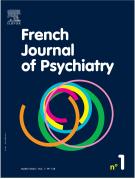Dissociative symptomatology in bipolar disorders: A systematic qualitative review - 29/05/20

Highlights |
• | Dissociative symptoms are more frequent in bipolar disorders vs. healthy controls. |
• | They are more often found in bipolar than depressive disorders. |
• | However, they are not specific, being found at higher levels in other mental conditions. |
• | Dissociative symptoms may represent a marker of severity of bipolar disorders. |
Summary |
Background |
Case reports and clinical studies suggest that dissociative symptoms (DS) and dissociative disorders (DD) are prevalent in bipolar disorders (BD).
Methods |
We conducted a systematic qualitative review on this association. MEDLINE and PsycINFO studies published up to November 15th, 2018 were searched, with an additional search through bibliographical references. English or French articles published in peer-reviewed journals, reporting quantitative measures of DS and/or frequency of DD, and at least one group or measure of BD were included. Six hundred and seven articles were reviewed on abstracts, 22 full-text articles screened, and 15 finally included.
Results |
Four studies showed that BD patients had more DS than healthy controls. DS were more frequent in BD than in unipolar depression in four studies, but less than in borderline personality disorder. DS were associated with an earlier age at onset of BD in two studies and possibly more comorbidity, while the associations with type of BD, suicidal behavior or childhood trauma need confirmation.
Conclusions |
While not specific among mental disorders, our review suggests an association between DS/DD and BD. Results should incite clinicians not to exclude too early an unrecognized BD in depressed patients with DS/DD, and consider DS/DD as markers of severity in BD.
Le texte complet de cet article est disponible en PDF.Keywords : Bipolar disorders, Depersonalization, Derealization, Dissociative disorders, Dissociative symptoms, Mood disorders
Abbreviations : BD, BD-I, BD-II, DD, DES, DES-T, DS
Plan
| ☆ | Work conducted at the Department of Psychiatry, Academic Hospital (CHU) of Nîmes, Nîmes, France. |
Vol 1
P. 11-24 - mars 2020 Retour au numéroBienvenue sur EM-consulte, la référence des professionnels de santé.
L’accès au texte intégral de cet article nécessite un abonnement.
Déjà abonné à cette revue ?

